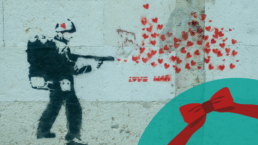Has the American myth of the Good War helped ensnare us in bad ones?
By Carlos Lozada, The New Yorker
The terrorist strikes of September 11, 2001, supposedly launched a new kind of American war, with unfamiliar foes, unlikely alliances, and unthinkable tactics. But the language deployed to interpret this conflict was decidedly old-school, the comfort food of martial rhetoric. With the Axis of Evil, the menace of Fascism (remixed as “Islamofascism”), and the Pearl Harbor references, the Second World War hovered over what would become known as the global war on terror, infusing it with righteousness.
This latest war, President George W. Bush said, would have a scope and a stature evoking the American response to that other attack on the U.S. “one Sunday in 1941.” It wouldn’t be like Desert Storm, a conflict tightly bounded in time and space; instead, it was a call to global engagement and even to national greatness. “This generation will lift the dark threat of violence from our people and our future,” Bush avowed.

Elizabeth D. Samet finds such familiarity endlessly familiar. “Every American exercise of military force since World War II, at least in the eyes of its architects, has inherited that war’s moral justification and been understood as its offspring: motivated by its memory, prosecuted in its shadow, inevitably measured against it,” she writes in “Looking for the Good War: American Amnesia and the Violent Pursuit of Happiness” (Farrar, Straus & Giroux).
Recent Posts
How to Organize Safely in the Age of Surveillance
February 22, 2026
Take Action Now From threat modeling to encrypted collaboration apps, we’ve collected experts’ tips and tools for safely and effectively building a…
‘The Siege Must Be Broken’: Countries Called to Ship Fuel to Cuba After Trump Tariffs Struck Down
February 21, 2026
Take Action Now The US Supreme Court’s ruling “implies that Trump’s recent order imposing tariffs on countries selling oil to Cuba exceeds the…
Elite Depravity in Imperial Decline, A Zero Hour Conversation With Richard Wolff
February 20, 2026
Take Action Now “The system self-selects for psychopathy… the most sociopathically obsessive competitor and accumulator of personal power and…
Economics of Health For All: The Plan to Put Health at the Heart of the Global Economy
February 20, 2026
Take Action Now At the World Health Assembly in May, member states may endorse an unprecedented strategy declaring that health is not a cost – but…




